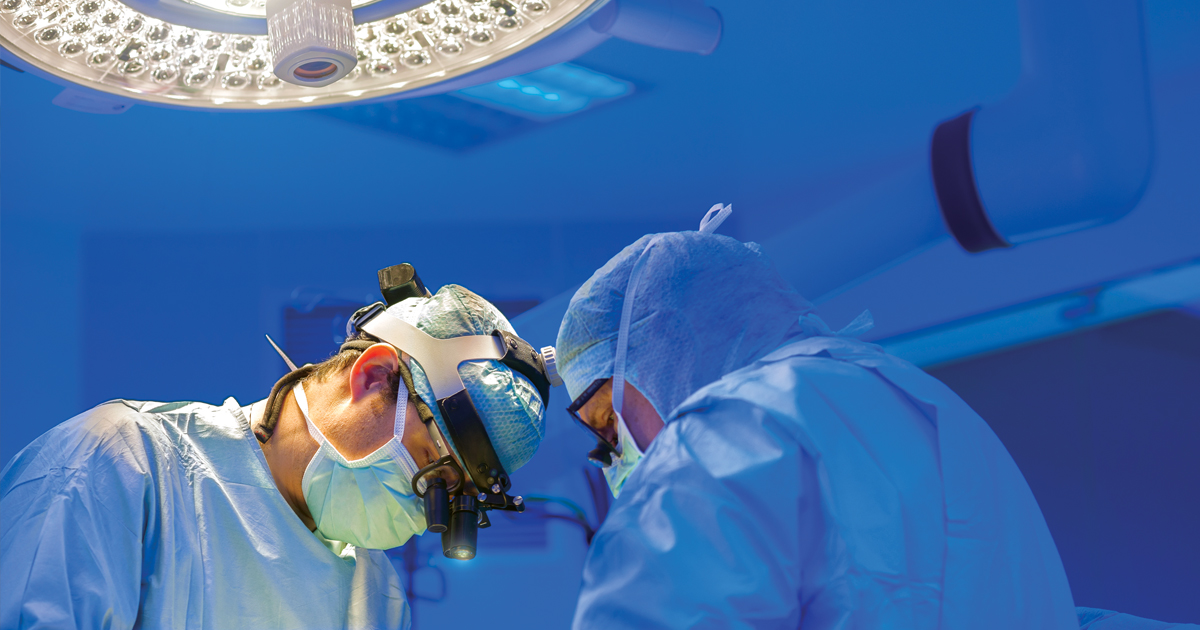Heart Health at AHN: Understanding Coronary Artery Bypass Grafting (CABG)

The heart is one of your most important organs, pumping blood and oxygen throughout the body. When the arteries that supply blood to the heart are blocked or not working properly, treatment is needed to keep the heart healthy.
The cardiac surgery team at Allegheny General Hospital (AGH) performs Coronary Artery Bypass Grafting (CABG) to help patients live longer, fuller lives.
What is CABG?
Coronary Artery Bypass Grafting, sometimes referred to as “CABG,” is a surgical procedure used to treat coronary artery disease. Coronary artery disease happens when the arteries get blocked, stiff, or filled with plaque. This can affect arteries all over the body, in places like the legs, organs, and brain.
How does CABG work?
CABG is like taking a detour around a blocked road. It creates a new pathway for blood to reach the heart.
To do this, AHN surgeons first perform a sternotomy – a cut in the breastbone. Then, they temporarily stop the heart to connect healthy blood vessels from the chest, arm, or leg to the heart. This bypasses the blockage and restores blood flow.
The procedure has been widely used since the 1970s. Today, CABG is the most common open-heart surgery performed in the U.S.* This is because coronary artery disease is a very common problem – one that many people are unaware of until it affects them or a loved one.
How CABG differs from other procedures
For appropriately selected patients, CABG ensures more complete restoration of blood flow, less need for repeat treatments over time, longer life expectancy than other procedures, and is more effective for relief of coronary artery disease symptoms:
- Shortness of breath.
- Chest pain.
- Heart attack (if the coronary artery is completely blocked).
- Faster heartbeat.
- Weakness or dizziness.
- Nausea.
- Sweating.
- Fatigue.
Even though it’s an invasive procedure with patients needing to stay in the hospital for a few days during recovery, CABG is incredibly safe.
Finding the right treatment for you
Not everyone with coronary heart disease needs CABG surgery. It’s important that you work closely with your AGH surgical team to choose the best treatment based on your symptoms and heart health.
Some patients can manage their condition with medical therapies alone or catheter-based procedures like stenting and angioplasty, where doctors open blocked arteries using a small balloon.
Patients with weaker hearts or diabetes may need a more invasive procedure like coronary bypass.
Along with procedures, lifestyle changes and medications play a key role in keeping your heart healthy. Managing blood pressure, staying active, and following a heart-healthy diet are all important for long-term wellness.
The team at AHN’s Cardiovascular Institute, including surgeons, cardiologists, nurses, nutritionists, and pharmacy, all work together to find the best treatment for each patient. If you have symptoms of coronary artery disease or are preparing for a bypass graft surgery, talking to your cardiologist or heart surgeon is the best way to stay informed.
Source: Coronary Artery Bypass Grafting (CABG) FAQs. umcvc.org
About Stephen H. Bailey, MD
Dr. Bailey is chair of the AHN Cardiovascular Institute and System Chair of the AHN Department of Thoracic and Cardiovascular Surgery. Dr. Bailey is also an Associate Professor of Cardiothoracic Surgery, Drexel University College of Medicine and the first recipient of the Magovern Endowed Chair in Cardiothoracic Surgery. He has expertise in complex heart surgery, aortic aneurysm surgery, minimally invasive valve repair and percutaneous valve surgery, heart transplantation and mechanical circulatory support, and re-operative cardiac surgery.
At AHN Cardiovascular Institute, our renowned cardiologists, surgeons, and heart specialists are committed to keeping your heart beating longer and stronger. Our specialists focus on providing expert care for conditions like heart attack and heart failure, as well as preventive medicine to keep you healthy.

